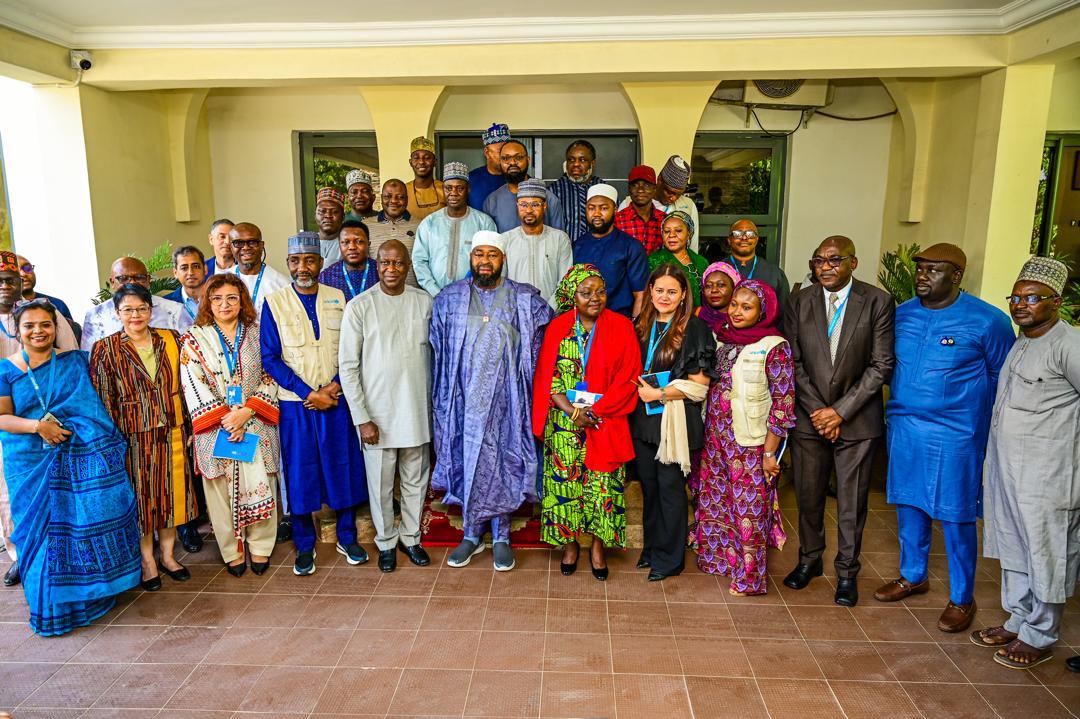Gavi announces $191m to boost Nigeria’s health system, immunisation
By Abujah Racheal
Gavi, the Vaccine Alliance, has announced a new 191 million dollars Health Systems Strengthening (HSS-3) grant to Nigeria aimed at improving immunisation coverage and reaching underserved populations.
The initiative targets 1.8 million zero-dose children, those who have never received any routine vaccines and aims to raise immunisation coverage to 84 per cent by 2028.
Dr Alex de Jonquières, Gavi’s Director of Health Systems and Immunisation Strengthening, made the announcement on Friday in Abuja.
He described the grant as one of Gavi’s largest ever, emphasising its scale and significance.
He noted that it was the result of an inclusive planning process led by Nigeria’s Federal Ministry of Health and Social Welfare, the National Primary Health Care Development Agency (NPHCDA), state governments, development partners, and civil society.
“The investment will support health system expansion, particularly at the sub-national level.
“Nearly 80 per cent of the funds will be allocated to states, and more than 10 per cent will go directly to civil society organisations to reach the most underserved communities,” said de Jonquières.
He lauded Nigeria’s progress, citing more than 62 million children vaccinated, two million deaths averted, and the successful introduction of nine new vaccines, including those for HPV and malaria.
He added that Gavi had invested more than 2.4 billion dollars in Nigeria since 2000.
“This support has enabled the renovation of 493 primary healthcare centres, recruitment of 3,683 health workers, and procurement of cold chain equipment and logistics vehicles to strengthen immunisation delivery,” he said.
However, de Jonquières also noted that Nigeria still bear the world’s highest burden of zero-dose children, calling for increased domestic investment, stronger accountability, and deeper collaboration.
“As we launch this new phase, we stand at a transformative moment. No child should die from a vaccine-preventable disease,” he said.
He also announced an additional 100 million dollars investment for a nationwide measles-rubella campaign in 2025, which aimed to protect more than 100 million children, Gavi’s largest campaign in Nigeria to date.
“This support aligns with Nigeria’s Sector-Wide Approach (SWAp) and broader health sector reforms to drive systemic improvements and sustainable progress in child health outcomes.”
Ms. Christian Munduate, UNICEF Representative in Nigeria, urged stakeholders to view health as a public investment rather than expenditure.
She emphasised the need for stronger collaboration between the government and private sector to ensure sustainable health systems.
“There is a need to expand the Basic Health Care Provision Fund (BHCPF), improve transparency in resource use, upgrade healthcare worker training and conditions, strengthen global partnerships, and scale up digital health solutions.
“These efforts must be seen as long-term investments in a healthier future for all Nigerians, especially children,” she said.
Dr Walter Mulombo, World Health Organisation (WHO) Representative in Nigeria, reaffirmed WHO’s commitment to strengthening the country’s health system through a rights-based approach grounded in governance, transparency, and partnerships.
He highlighted governance as a critical pillar of health systems strengthening and commended Nigeria’s progress with the SWAp.
He underscored urgent priorities, including reducing zero-dose children, expanding malaria and HPV vaccinations, and introducing the measles-rubella vaccine.
The News Agency of Nigeria (NAN) reports that the HSS-3 initiative, supported by Gavi and global partners, aims to improve healthcare access for women and children, particularly in underserved areas.
Running from 2025 to 2028, the programme will address resource gaps, strengthen leadership and oversight, and expand primary healthcare services across Nigeria. (NAN)
Edited by Nkiru Ifeajuna/Abiemwense Moru





